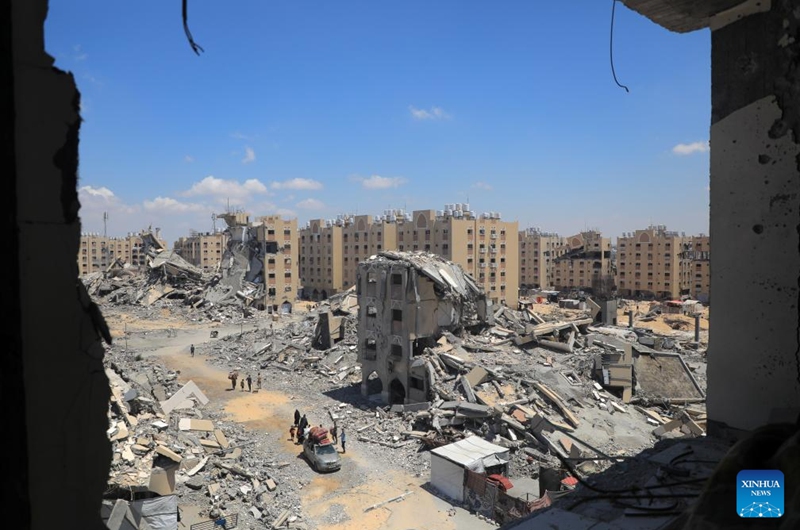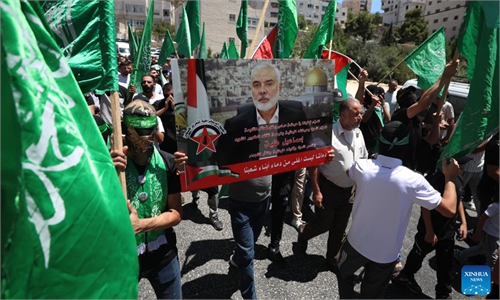New cease-fire talks start as Gaza death toll passes 40,000
Hamas reportedly absent amid high tensions in the region

People flee from the Hamad City, a neighborhood in the northwest of the southern Gaza Strip city of Khan Younis, on Aug. 11, 2024, following the latest evacuation order issued by the Israeli authorities. Photo: Xinhua
A new round of Gaza cease-fire talks was held in the Qatari capital Doha on Thursday afternoon, while Hamas officials did not join the talks, media reported. Hamas' absence from a new round of Gaza cease-fire talks has dashed hopes that they may yield some substantial results, and the failure to reach a deal increases the risk of Iran striking Israel to avenge the killing of a Hamas leader in Tehran last month, said observers.
The Palestinian death toll from Israeli attacks on the Gaza Strip since the outbreak of the current round of Israeli-Hamas conflict began on October 7 has surpassed 40,000, Xinhua News Agency reported.
Hamas said on Wednesday it would not take part in the cease-fire talks, but an official briefed on the talks said mediators were expected to consult with the Palestinian group afterwards, per Reuters.
This round of talks is based on a three-phase proposal that US President Joe Biden laid out in a national address on May 31 calling for a cease-fire, the release of Israeli hostages and Palestinian prisoners and detainees and the reconstruction of Gaza, media reported.
Liu Zhongmin, a professor at the Middle East Studies Institute of Shanghai International Studies University, believes that the prospects for the talks' success seem dim, as all the problems that needed to be resolved in previous negotiations between Hamas and Israel have not been resolved, and new obstacles are emerging, adding pressure to the talks.
Iran this week rejected calls from some Western countries to refrain from retaliation against the assassination in Tehran of Ismail Haniyeh last month, just hours after an Israeli strike in Beirut killed a senior commander of Hezbollah in Lebanon.
Meanwhile, the US is sending more troops and military hardware to the Middle East to defend Israel from a possible attack from Iran, and has recently approved $20 billion in arms sales to Israel.
Experts said the failure to reach a deal this time also increases the likelihood of potential retaliatory strike by Iran against Israel for the killing of the Hamas leader. Ahead of the talks, top Hamas official Osama Hamdan told the AP that the Palestinian militant group is losing faith in the US' ability to mediate a cease-fire in Gaza.
The US has recently increased pressure on Israel to reach a cease-fire deal in Gaza, but Washington's overall policy toward the country remains supportive and is unlikely to change in the short term, Zhu Yongbiao, director of the Center for Afghanistan Studies at Lanzhou University, told the Global Times. He said this biased stance has downgraded the US' authority and status in mediating a cease-fire deal in Gaza.
Speaking at a UN Security Council briefing on Tuesday, China's permanent representative to the United Nations Fu Cong said that two months ago, when pushing for Security Council Resolution 2735, the US claimed that Israel had accepted a cease-fire agreement, but the reality is quite the opposite. Instead of credible signs of Israel's commitment to a cease-fire, what we see is ever-expanding military operations and ever-increasing civilian casualties.
The US, as the largest supplier of weapons, has enough influence over Israel. We hope that the US will take sincere and responsible actions to push Israel to stop its military operations in Gaza as soon as possible and to stop slaughtering civilians, said Fu.


